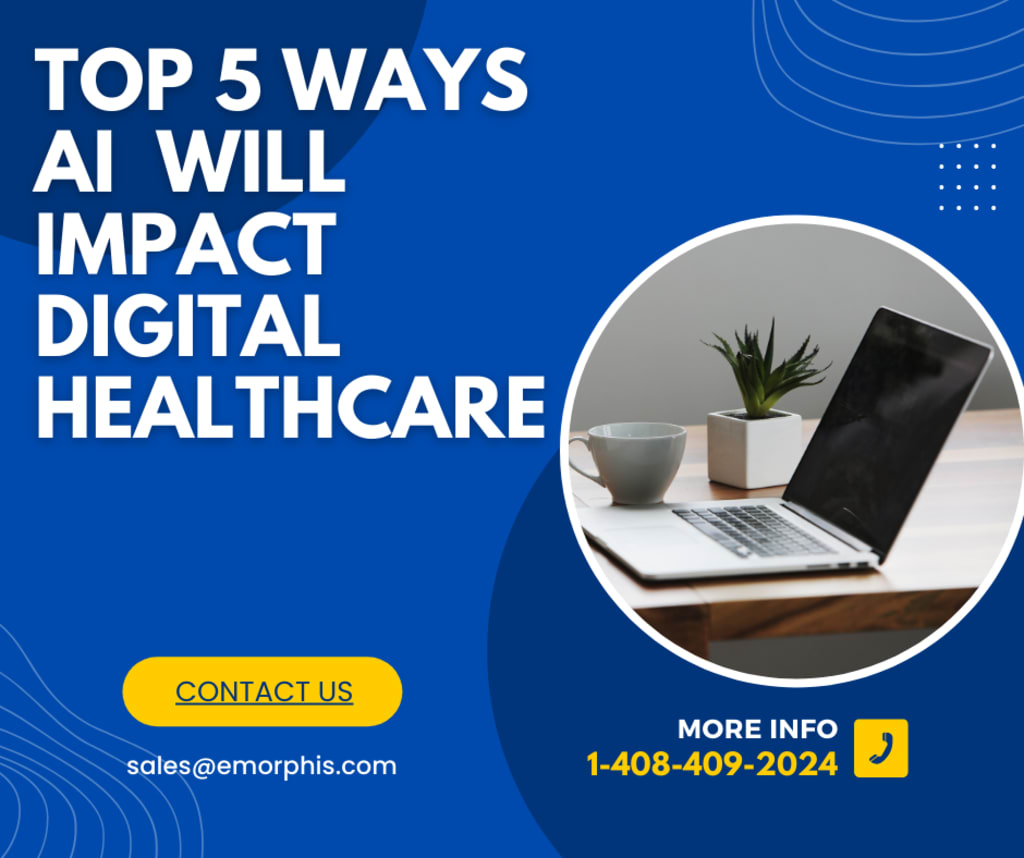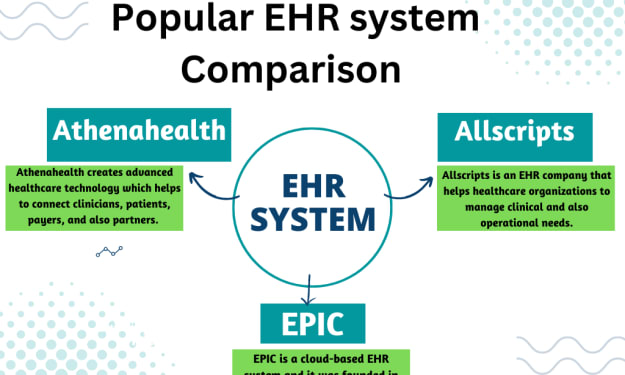How Artificial Intelligence is Uplifting Digital Healthcare
Digital Healthcare

Introduction
Artificial intelligence (AI) is becoming increasingly prevalent in digital healthcare. AI is being used to improve patient care and outcomes, reduce medical costs, and increase the efficiency of medical services. AI-based systems are able to diagnose and treat diseases more accurately than humans and can provide personalized medical advice to patients. AI is also being used to develop personalized health plans, provide predictive analytics to improve patient outcomes, and to provide intelligent decision support for healthcare providers. AI-based systems are increasingly being used to automate administrative tasks, such as patient scheduling and billing. AI-based technologies are also being used to improve medical imaging, to detect and monitor diseases more accurately, and to identify and treat diseases earlier. AI is being used to develop virtual health assistants to provide personalized healthcare advice to patients. AI is also being used to develop personalized treatments and personalized medicines that are tailored to a patient's individual needs. AI-based systems are also being used to improve patient engagement, to provide personalized health services, and to provide better care coordination.
Artificial Intelligence Bringing a Positive Change in Healthcare Application Development
The healthcare application development industry has seen a recent boost in the use of artificial intelligence (AI). AI has proved to be a powerful tool in healthcare application development, providing a range of benefits to both patients and physicians.
AI-powered applications are improving the accuracy of diagnosis, automating mundane tasks, and providing more personalized care. AI-powered applications are able to provide more accurate diagnosis and treatment plans, freeing up physicians from the need to manually review vast amounts of data. AI-powered applications can also provide more personalized care, enabling physicians to better understand their patients’ needs and preferences.
AI-powered applications can create a positive change in the development of healthcare applications. AI can enable healthcare applications to become more personalized and efficient in the delivery of health services. It can provide predictive analytics, which can help healthcare providers anticipate patient needs and provide better care.
AI can also help streamline administrative tasks and reduce costs associated with healthcare services. AI-powered applications can also enable healthcare providers to better monitor and manage patient health, as well as provide more accurate and timely diagnoses and treatments. Finally, AI can help healthcare providers better understand the needs of their patients and develop more effective strategies for patient care.
Top 5 Ways Artificial Intelligence Will Impact Digital Healthcare
1. Improved Diagnosis: AI algorithms can compare a patient's medical data to large datasets to help identify potential diagnoses and diseases more accurately, quickly and cost-effectively than traditional methods.
2. Data Analysis: AI can analyze vast amounts of patient data to identify trends, correlations and patterns that can help improve patient care, reduce medical costs and improve outcomes.
3. Automation of Administrative Tasks: AI can automate mundane and repetitive tasks such as scheduling appointments, processing medical records and billing. This frees up healthcare staff to focus on more important tasks such as patient care.
4. Virtual Assistants: AI-based virtual assistants can help patients find the right doctor, schedule appointments and answer health-related questions. This can reduce wait times and improve the overall patient experience.
5. Improved Drug Discovery: AI algorithms can help identify potential drug targets, analyze chemical properties and develop new drugs more quickly and cost-effectively than traditional methods. This can speed up the drug discovery process and lead to better treatments for patients.
Conclusion
The use of artificial intelligence in healthcare benefits both patients and medical professionals. By using predictive medical care, for instance, patient data is continually screened for abnormalities, and before any healthcare conditions arise, patients may receive useful advice on how to prevent them.
On the other side, diagnosis is enhanced by AI, which enables quicker data cross-referencing and study. The collected information is comprehensive and includes handwritten notes, sensor data, and test results. Aside from these advantages, AI also enables long-term cost reductions for patients and healthcare providers through treatment options, quick diagnosis, and improved drug development decision support.
About the Creator
Larisa Albanians
Hey, a healthcare technology solutions provider at emorphis, that is helping organizations to deliver better healthcare solutions.






Comments
There are no comments for this story
Be the first to respond and start the conversation.